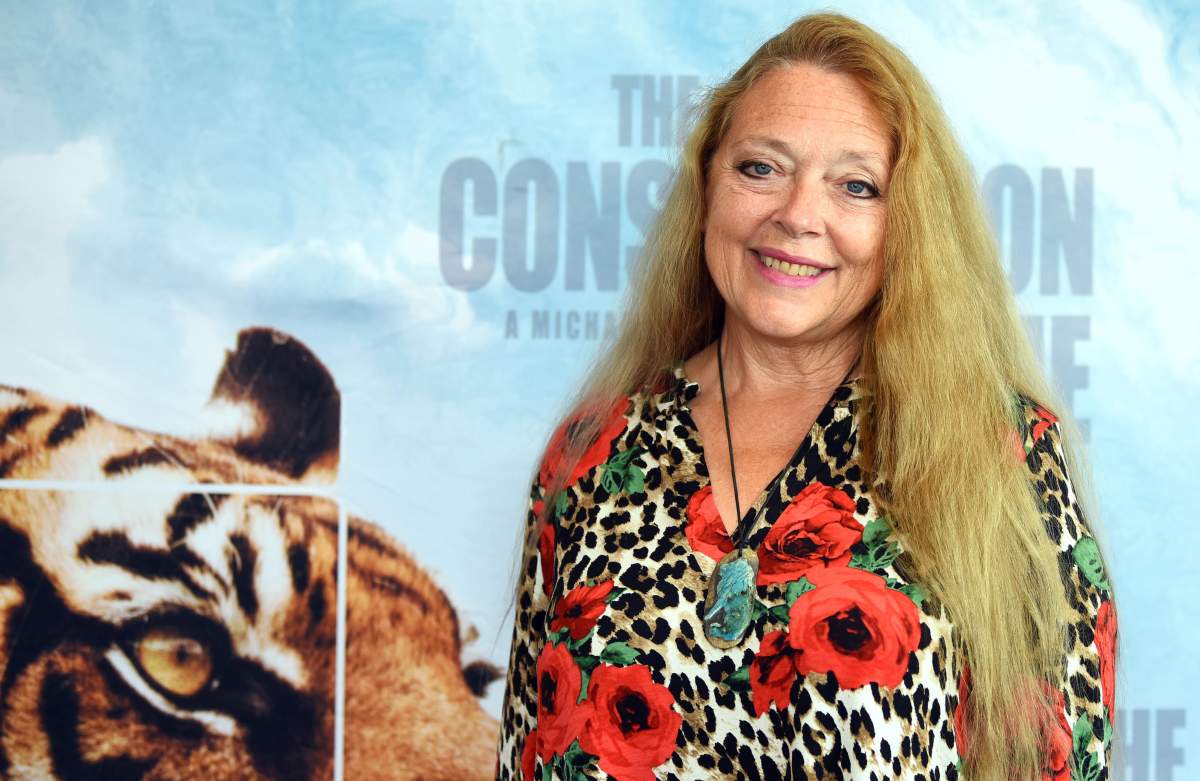Tiger King star Carole Baskin is saying goodbye to her beloved Big Cat Rescue sanctuary.

Big Cat Rescue announced its closure in a statement written by Baskin’s husband, Howard Baskin, last week.
The sanctuary, which has housed injured or orphaned native wild cats for 30 years, said it will move most of its wildlife population from Tampa, Fla., to the Turpentine Creek Wildlife Refuge in Arkansas.
Howard wrote that Big Cat Rescue will continue to fund the care of their animals at Turpentine Creek Wildlife Refuge until the end of their lives.
Once the sanctuary’s wild cat population is transported to Arkansas, Howard claimed they will sell the Big Cat Rescue property and use the funds to support “species-saving projects.”
Alongside a desire to direct funds and attention to saving big cats in the wild, the statement noted it had become too costly to care for their “increasingly geriatric” population of 41 cats. Even with a smaller “skeleton staff” operating Big Cat Rescue since the COVID-19 pandemic, the overhead cost to operate the sanctuary runs apparently US$1.5 million per year.
“These are expenses like grounds maintenance, building maintenance, electricity for all the buildings and wells and tiger pool pumps, phones, insurances, technology updates, and equipment maintenance, to name a few,” the statement reads.
When Big Cat Rescue had 100 cats, the annual overhead cost equated to about $15,000 per animal. Now with only 41 cats, it reportedly costs the business $36,000 per cat each year.

Get daily National news
The statement claimed the passage of last year’s federal Big Cat Public Safety Act in the U.S. — which Big Cat Rescue staunchly supported — will reduce the need for wild cat rescues. The act made it illegal to privately own big cat breeds including lions, tigers, leopards, cheetahs, jaguars, cougars or any hybrid of such species. The act also prohibited cub petting, which sees businesses breed baby animals to be used as photo props by paying customers.
Howard wrote in the statement that the goal of Big Cat Rescue has always been “to ‘put ourselves out of business,’ meaning that there would be no big cats in need of rescue and no need for the sanctuary to exist.”
The sanctuary could not in good conscience, however, stay in operation until its population dwindled to zero, as the Baskins feel their funds and resources could be better allocated to saving wild populations from extinction.
“The win-win solution both for our captive cats and the cats in the wild is for us to merge our cat population with the population at another existing accredited sanctuary and devote the remaining resources of our sanctuary to the ‘in situ’ projects being conducted around the world to avoid extinction,” the statement reads.
Howard wrote that a current expansion project at Turpentine Creek Wildlife Refuge is expected to be completed in six months and will provide adequate space to house Big Cat Rescue’s animals.
Baskin and Big Cat Rescue catapulted into the public eye three years ago as part of Netflix’s Tiger King: Murder, Mayhem and Madness.
The documentary followed Joseph Maldonado-Passage, also known as “Joe Exotic,” a former Oklahoma zookeeper. He was convicted of trying to hire someone to kill Baskin, who had tried to shut him down, accusing the Oklahoma zoo of abusing animals and selling big cat cubs.
In retaliation, Maldonado-Passage raised questions about the disappearance of Baskin’s husband Don Lewis, who vanished mysteriously more than two decades ago. The documentary extensively covered Maldonado-Passage’s repeated accusations that Baskin killed her husband and possibly fed him to her tigers. Baskin, who founded Big Cat Rescue, has never been charged with any crime and released a statement refuting the accusations made in the series.
Maldonado-Passage was resentenced in 2022 to serve 21 years in prison after he begged the court for leniency as he began treatment for prostate cancer.

— With files from The Associated Press










Comments